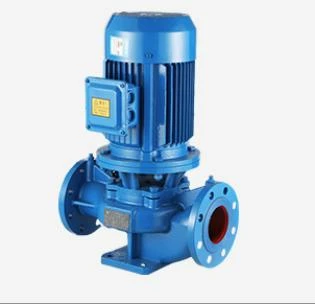Serbian
- Afrikaans
- Albanian
- Amharic
- Arabic
- Armenian
- Azerbaijani
- Basque
- Belarusian
- Bengali
- Bosnian
- Bulgarian
- Catalan
- Cebuano
- Corsican
- Croatian
- Czech
- Danish
- Dutch
- English
- Esperanto
- Estonian
- Finnish
- French
- Frisian
- Galician
- Georgian
- German
- Greek
- Gujarati
- Haitian Creole
- hausa
- hawaiian
- Hebrew
- Hindi
- Miao
- Hungarian
- Icelandic
- igbo
- Indonesian
- irish
- Italian
- Japanese
- Javanese
- Kannada
- kazakh
- Khmer
- Rwandese
- Korean
- Kurdish
- Kyrgyz
- Lao
- Latin
- Latvian
- Lithuanian
- Luxembourgish
- Macedonian
- Malgashi
- Malay
- Malayalam
- Maltese
- Maori
- Marathi
- Mongolian
- Myanmar
- Nepali
- Norwegian
- Norwegian
- Occitan
- Pashto
- Persian
- Polish
- Portuguese
- Punjabi
- Romanian
- Russian
- Samoan
- Scottish Gaelic
- Serbian
- Sesotho
- Shona
- Sindhi
- Sinhala
- Slovak
- Slovenian
- Somali
- Spanish
- Sundanese
- Swahili
- Swedish
- Tagalog
- Tajik
- Tamil
- Tatar
- Telugu
- Thai
- Turkish
- Turkmen
- Ukrainian
- Urdu
- Uighur
- Uzbek
- Vietnamese
- Welsh
- Bantu
- Yiddish
- Yoruba
- Zulu
Telephone: +86 13120555503
Email: frank@cypump.com
окт . 19, 2024 08:34 Back to list
Boost Productivity with Advanced High-Capacity Sludge Water Pumps for Optimal Performance
Increasing Efficiency with High-Capacity Sludge Water Pumps
In various industrial sectors, managing wastewater effectively is paramount. The treatment and disposal of sludge—a byproduct generated from wastewater processes—pose significant challenges. However, the introduction of high-capacity sludge water pumps has revolutionized this critical aspect of wastewater management, leading to increased efficiency, reduced operational costs, and enhanced environmental protection.
Understanding Sludge Water Pumps
Sludge water pumps are specialized equipment designed to handle the transfer of thick, viscous materials, including sewage, sludge, and other waste byproducts. Unlike standard pumps, high-capacity sludge pumps are built with robust materials and advanced engineering to manage the abrasive and corrosive nature of sewage effectively. These pumps can transport large volumes of sludge quickly and reliably, making them essential in wastewater treatment plants, industrial facilities, and municipal applications.
Key Benefits of High-Capacity Sludge Pumps
1. Enhanced Efficiency One of the most significant advantages of high-capacity sludge pumps is their efficiency. Traditional pumps may struggle with the high solids content found in sludge, leading to blockages and downtime. High-capacity pumps are engineered to handle solid-laden fluids without compromising flow rates, thus minimizing disruptions and maximizing productivity.
2. Cost-Effectiveness While the initial investment for high-capacity sludge pumps may be higher than for standard pumps, their long-term cost-effectiveness is undeniable. These pumps require less maintenance and fewer repairs due to their durable construction, resulting in lower operational costs over time. Additionally, reduced downtime translates to increased throughput, further improving the overall cost efficiency of wastewater management processes.
increase efficiency with high-capacity sludge water pump for ...

3. Versatility and Adaptability High-capacity sludge pumps are incredibly versatile, capable of handling various types of sludge, including municipal sewage, industrial effluent, and biological sludge. Their adaptability makes them suitable for diverse applications, from small-scale operations to large wastewater treatment facilities. This versatility is essential in environments that require dynamic adjustments to flow rates and handling capacities.
4. Improved Environmental Compliance The efficient removal and treatment of sludge are crucial for meeting environmental regulations and standards. By utilizing high-capacity sludge pumps, facilities can ensure that they comply with local and federal guidelines regarding wastewater disposal. This not only reduces the risk of penalties and fines but also promotes corporate responsibility and sustainability.
5. Reliability and Durability High-capacity sludge pumps are designed to withstand harsh operating conditions, including fluctuations in temperature, pressure, and chemistry. This robustness ensures reliable performance in challenging environments, mitigating the risk of failure and ensuring continuous operation. Such reliability is critical in maintaining the integrity of wastewater treatment processes.
Conclusion
The implementation of high-capacity sludge water pumps represents a significant advancement in the field of wastewater management. By improving efficiency, reducing costs, and ensuring compliance with environmental standards, these pumps enhance the overall effectiveness of sludge handling operations. As industries continually strive to optimize their processes, investing in high-capacity sludge pumps will undeniably yield substantial returns, both economically and environmentally.
In conclusion, as we face increasing pressures to improve wastewater management practices and reduce our environmental footprint, the role of high-capacity sludge pumps becomes increasingly vital. Facilities that adopt such technology are not only improving their operational efficiencies but also contributing positively to the sustainable management of our planet's water resources.
-
High-Efficiency Submersible Effluent Pump for Sewage & Wastewater Solutions
NewsJul.08,2025
-
High Quality CH Warman Slurry Pump Factory - Leading Horizontal Slurry Pump Supplier
NewsJul.08,2025
-
Hot Sale Chemical Circulating Pump – Efficient & Durable Slurry Circulating Pump Solutions
NewsJul.08,2025
-
High-Efficiency Submersible Dredge Pump for Sand & Gravel Durable Dredge Slurry Pumps Solutions
NewsJul.07,2025
-
Wholesale Slurry Pump Impeller Supplier – High-Quality & Efficient Pump Parts for Enhanced Performance
NewsJul.07,2025
-
High-Efficiency Water Submersible Pumps Reliable Water Pump for Potable Water Supply
NewsJul.06,2025










